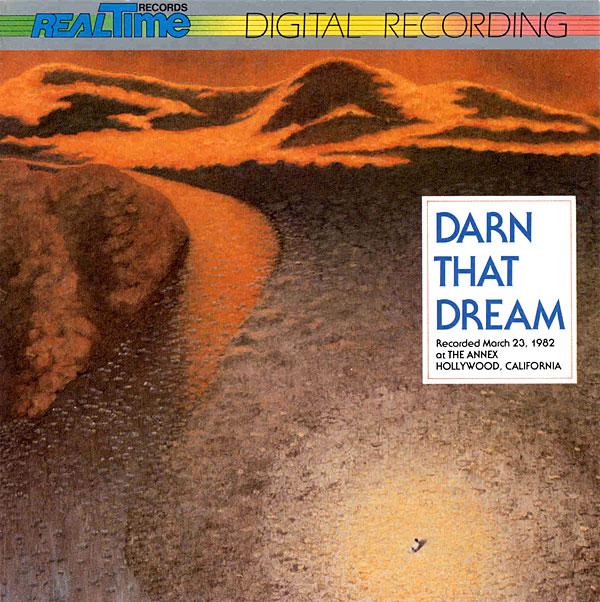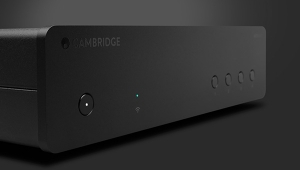| Columns Retired Columns & Blogs |
Recordings of April 1983: Darn That Dream & Piano Works

Art Pepper: Darn That Dream
Art Pepper, alto sax; Joe Farrell, tenor sax; George Cables, piano; John Dentz, drums; Tony Dumas, acoustic bass.
M&K RealTime Digital RT-309 (LP). Ken Kreisel and John Dentz, prods., Ken Kreisel and Scott Simon, engs. Recorded at The Annex Studio, Hollywood, CA, March 23, 1982. 37:36.
Art Pepper, alto sax; Joe Farrell, tenor sax; George Cables, piano; John Dentz, drums; Tony Dumas, acoustic bass.
M&K RealTime Digital RT-309 (LP). Ken Kreisel and John Dentz, prods., Ken Kreisel and Scott Simon, engs. Recorded at The Annex Studio, Hollywood, CA, March 23, 1982. 37:36.
Earl Wild: Works for Piano
Cesar Franck: Prelude, Chorale and Fugue; Gabriel Fauré: Barcarolle No.3 in G Flat, Op.42. Maurice Ravel: Gaspard de la Nuit.
Earl Wild, piano.
Audiofon Stereo 207 (LP). Julian H. Kreeger, prod., Peter McGrath, eng.
Darn That Dream should be of great interest to jazz buffs, as it is one of Art Pepper's last recordings, and a superb recording it is. One hardly feels that one is listening to a disc. Close your eyes and you are in the room with the players. For anyone who enjoys jazz, this record is a must.
The program is most enjoyable, featuring two long improvisational numbers: "Section-8 Blues," and "Mode for Joe," as well as less heavily textured numbers which include "Someday My Prince Will Come," "Sweet Lorraine," "Darn That Dream," and a solo piano version of "Who Can I Turn To."
Each player can stand alone as an outstanding performer, and the aggregation of this talent makes these interpretations memorable. My personal favorites are the title song, "Darn That Dream" featuring Art Pepper, and George Cable's suave interpretation of "Who Can 1 Turn To."
Ken Kreisel and Scott Simon are to be commended for this disc. Definitely Top-of-the-Pile.
We certainly owe a debt of gratitude to Earl Wild, Julian Kreeger, and Peter McGrath for giving us a splendid group of piano recordings. I only pray that this partnership will continue for many more such discs. Mr. Wild's choice of repertoire and his dazzling performances are matched admirably by Audiofon's recordings.
The Audiofon LP displays Mr. Wild's prodigious technique as well as his maturity of interpretation. Although the Gaspard de la Nuit and the Franck Prelude, Chorale and Fugue have been previously recorded, the Fauré Barcarolle is not available on any other disc.
The Franck was written late in the composer's life, some 19 years after he had written his last work for solo piano. Like so much of his piano music, the composition shows his great interest in organ works. The innovation of inserting the Chorale between the Prelude and the Fugue is certainly most effective. Its chordal structure serves as ballast and balance for the rippling arpeggios found in the Prelude and Fugue. As usual Mr. Wild's playing seems so effortless that the listener is unaware of the difficulties of execution. Unlike so many performers, Mr. Wild seems to feel no need to make a point of his virtuosity; his energies are devoted to the interpretation of the work.
The Fauré is a charming example of "French Trickle Music," filled with runs and gentle in its occasionally rocking phrases. For some reason the jacket notes make no mention of this work. As the notes were written by Mr. Wild, I can only assume the mention of the Fauré was omitted for space reasons.
Gaspard de la Nuit is one of Ravel's great piano works. Inspired by the poetry of Aloysius Bertrand, it comprises three rather different tone poems: "Ondine," "Le Gibet" (The Gallows), and "Scarbo" (a will-of-the-wisp). The melancholy legend of Ondine seems to have been a favorite with the French during the early part of the 19th Century. Debussy wrote a prelude entitled "Ondine," and there is a small body of literature concerned with this water nymph who fell in love with a mortal. Ravel's composition, like Debussy's, attempts to recreate the watery milieu. Arpeggios (which seem to be the dominating theme of this recording) abound, and all are played tricklingly by Mr. Wild.
The recording is excellent as usual, although I was somewhat disturbed by pre-echoes in the quiet passages of the Ravel. There are only a few, so it does not seriously mar the generally high quality of this disc. They do, however, prevent it from becoming a Top-of-the-Pile disc.—Margaret Graham
- Log in or register to post comments



































